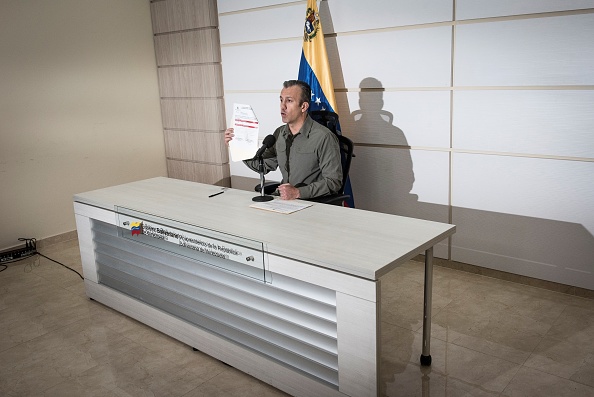As Venezuelan bulls go, Vice President Tareck El Aissami is hard to beat. Who else could announce that the travel and leisure industry in the hemisphere’s most deranged economy was on a roll?
“Our country was dependent on oil for many years, but now has come the time of tourism for economic development,” El Aissami said at a trade fair on Margarita Island last week. “Tourism has become the first engine of economic development in our country.”

Nothing unusual from the Bolivarian Republic, where hype and fake news are as plenteous as empty cash machines. Look no further than President Nicolas Maduro’s claim in August that 8 million people voted for his cherry-picked Constitutional Assembly – apparently more than the entire voter turnout.
Yet touting tourism took some special cheek, not least because the man flogging that trade recently won notoriety for his alleged enterprise in another industry, international drug trafficking.
Perhaps they’re trying to corner the market on adventure travel, catering to adrenaline junkies who take jeep safaris to Rio de Janeiro’s favelas, sometimes to tragic result. After all, political turmoil has brought impromptu barricades and clouds of tear gas to Caracas’s streets, which were already some of the world’s meanest. Not enough for you? How about what may be the world’s worst inflation rate, and one of the most convoluted currency and bank transaction systems. Driving is a game of Bolivarian roulette. Thanks to scarcity of medicine, falling ill or suffering injury can quickly become life-threatening.
That’s assuming you can even get to Venezuela. Since last year, despairing of ever recovering profits, the airlines that have pulled out include Brazil’s Gol, Lufthansa, United and Aeromexico. Scarcity has left even high-end hotels short of linens and elevator parts, according to a recent Euromonitor report on Venezuelan tourism. “Even if you’re not worried about safety, visiting Venezuela is a logistical nightmare,” Fernando Freijedo, Venezuela analyst for the Economist Intelligence Unit, told me.
Drawn by excitement over the late Hugo Chavez’s experiment in 21st-century socialism, international visitors once streamed to Venezuela — Hollywood grandees and ring-kissing celebrities among them.
But the thrill is gone. Chavez died of cancer in 2013, leaving the inn to Maduro, a hapless successor who, even as global tourism soared, saw the inbound flow shrink 20 percent in three years. Exit stage left the queue of celebrities at the Palacio de Miraflores. Now travel warnings trump the encomiums to the revolution. The view in Venezuela today is of a slow-motion debacle.
El Aissami’s assertions might best be seen as another addition to the genre of Bolivarian magical realism. “It’s a lot like Maduro’s plan to restructure debt,” said Freijedo. “Every once in a while we hear announcements like this. There’s no investment plan, and nothing comes of it. In the end, what’s left is a sound bite.”
In Venezuela, squandered opportunities compound the tragedy. Few nations, after all, are so seductively endowed. The country straddling the Andes and the Caribbean boasts the world’s highest waterfall, jungle-clad islands, oceanfront to die for, snow-capped mountains, and probably the continent’s yummiest cornmeal treats, if you can still find them. Venezuela has everything a tourist could want – at a cost that few will be willing to pay.













